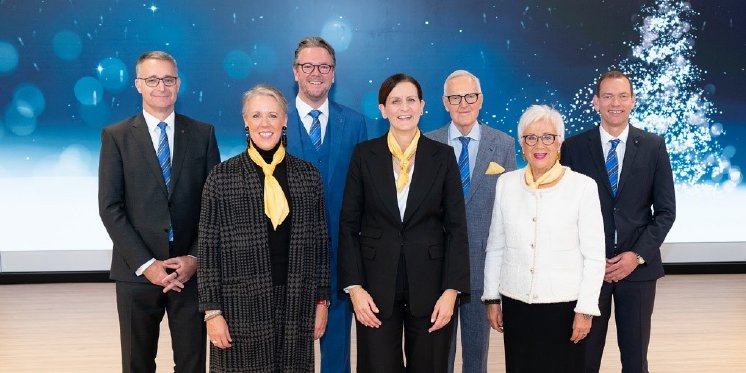"We have achieved our goals," said Philip Harting, CEO of the HARTING Technology Group. A year ago, he had thought double-digit growth was possible. "We delivered."
In addition to catch-up effects resulting from the Corona pandemic, the main growth drivers were the industrial transformation, advancing digitalisation and the development of energy-efficient production technologies and products.
"We want to develop new high-performance technologies and solutions for the connectivity of the future to meet the challenges of decarbonisation, demographic change and energy efficiency," as Philip Harting clarifies the technology group's claim and aspirations. Connectivity is a basic technology for the transmission of data, signals and energy - without which sustainable production is not possible.
Philip Harting sees the company as well positioned. "We will continue to focus on strengthening our global footprint." For example, the group invested in the expansion and new construction of its plants in Romania, the USA, Mexico and India, as well as in digitalisation and additional development capacities geared to strengthening its core business. Record investments of around € 80 million are also planned for 2022/23.
In order to develop new connectivity solutions, the company is also relying on strategic partnerships. For example, with Studer Cables AG, which the Harting family of entrepreneurs acquired in the summer. Another focus area: The expansion and strengthening of the solutions portfolio as well as the development of new connectivity solutions for Transportation, Machinery, Energy Infrastructure and Renewable Energies.
Philip Harting expressly emphasised that the topic of sustainability holds particular significance at HARTING: "The expansion of renewable energy production has been an obligation for us not only since the energy bottlenecks due to the Ukraine war. We have been consistently taking steps towards climate-neutral production for more than 30 years:” For example, the company has reduced C02 emissions from 19,203 t to 1,556 t in Germany since 2010/11 through a variety of measures.
"We are taking responsibility for our environment and future generations. By 2030, we want to be climate-neutral at all production sites worldwide and reduce the carbon footprint for all upstream and downstream processes by 50 %," as Philip Harting stated, setting clear goals. At HARTING, however, sustainability not only comprises products, processes and production, but pertains to all areas of the company - for example, in training and employee development, in the expansion of our health platform for employees and in the extensive and far-reaching commitment to culture, education and sport.
With a look to the 2022/23 business year, growth expectations are considerably more subdued in view of the inflationary-recessionary economic developments and material and energy shortages. The development of energy and material prices develop will be decisive. The factors have burdened the investment climate. The Ukraine war as well as the tensions in connection with Taiwan and challenging material shortages all add up. "We expect a sideways movement and will also have to work hard to confirm the result we achieved this year," as Philip Harting went on to state.


